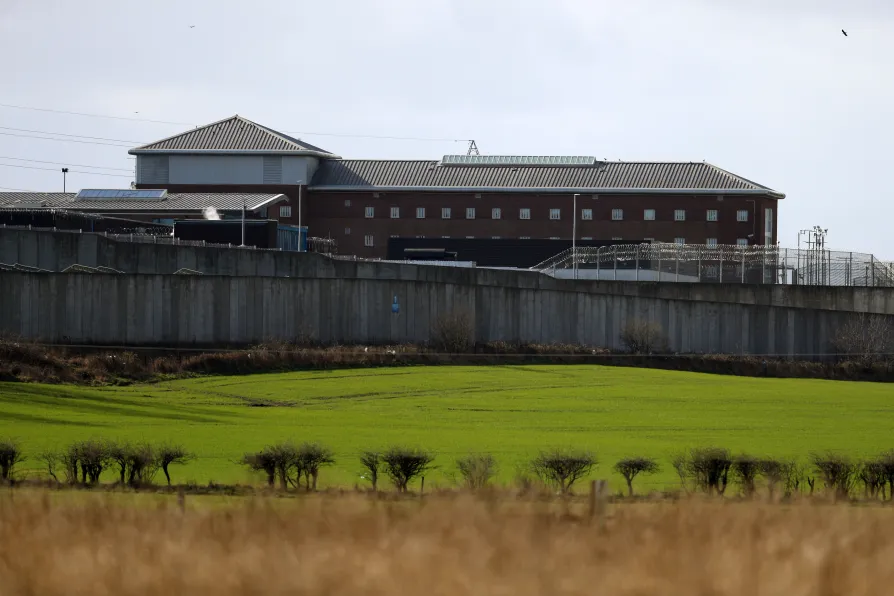By pressuring Mexico to halt oil shipments, Washington is escalating its blockade of Cuba into a direct bid for economic collapse and regime change, argues SEVIM DAGDELEN
BRIAN LEISHMAN on how the government’s refusal to release a pro-privatisation report on prison maintenance is fuelling fears of a cover-up

 A general view of HMP Glenochil
A general view of HMP Glenochil
MEMBERS of Parliament play a crucial role in holding the government to account – whichever party is in power.
That means asking the difficult questions and sometimes putting ministers on the spot if we think they are making a mistake.
Like all Labour members, I desperately want this government to succeed and to deliver meaningful change for everyone in Britain.
Fourteen years of Tory rule have hammered our public services. Nowhere is this clearer than in our prisons.
Violent, overcrowded jails are no place for rehabilitation, so prisoners often leave them more criminalised and traumatised.
Our government knows this and is desperately trying to repair the damage done by the Tories, but it will take bold and brave thinking to break out of the ideological headlock that seems to have gripped the prison service.
For example, of the three new prisons announced by the government, only one will be run by the public sector. But why are we following the Tory plan to build more private prisons when we know they’re likely to be more violent and dangerous than those in the public sector?
Or take prison education. Private contracts to run this vital public service, which must surely be key to reducing reoffending, have just been reissued – including to a subsidiary of a US-based hedge fund, according to the University and College Union.
Why should a US hedge fund be allowed to make money out of teaching British prisoners? It makes no sense.
The poisonous impact of profiteering is felt in everything — from the canteen, where prisoners pay way over the odds for basic items, to telephone calls, for which they still pay per minute. How many of us on the outside do that?
However, it is maintenance and repairs where privatisation has probably caused the most damage. A decade of outsourcing has been a disaster, with prisons mired in squalor as the maintenance backlog has soared.
According to the prison service, it will cost £2.8 billion over the next five years to bring the entire estate into a fair condition. Germany and the Netherlands have both refused to extradite prisoners back to Britain in recent years due to concerns over inhumane prison conditions.
Yet, despite this colossal failure by the private sector, the government plans to re-tender these contracts next year.
This has rightly caused outrage among unions representing prison staff — especially the Prison Officers Association, which recently asked its members to provide evidence about the state of their establishments.
The response was overwhelming, with officers from across Britain writing in detail about how conditions have degraded over the past decade and calling for change.
That is why I asked ministers in Parliament this week to release the last government’s report recommending more privatisation of prison maintenance.
For months, they have refused to do so on grounds of commercial confidentiality, so I added that the report could of course be suitably redacted if necessary.
I also explained that we must have effective scrutiny of these contracts for full transparency — and to avoid any accusations of a cover-up. What did I mean by this?
Well, in March the justice committee quizzed officials over the difficulties of scrutinising private contracts in the prison service.
My Labour colleague Sarah Russell warned bluntly: “There is a danger that there could be a perception — I only say ‘perception’ because, to be clear, I am absolutely not making this allegation myself — that the Civil Service worked with contractors to produce contracts that made it difficult for us as representatives effectively to scrutinise what goes on.”
Dame Antonia Romeo, the permanent secretary at the time — she has since moved on to run the Home Office — seemed quite shocked by the question, replying that she had “not heard that allegation before” and claimed: “We could not be more enthusiastic to be scrutinised by Parliament.”
Her replacement Amy Rees, who was then still CEO of HMPPS, was similarly thrown and insisted: “Setting up a contract in which we were somehow in cahoots with a provider who was not providing would make my job extremely difficult.”
Sarah was quick to reassure both witnesses: “I am not suggesting that you are personally corrupt. I want to be extremely clear that I absolutely am not suggesting that whatsoever, but a question needs to be asked about how that functions.”
She is right — the question does need to be asked. Which is why it was so disappointing that the minister repeated the same line to me this week in Parliament about commercial confidentiality.
And it is even more disappointing that, despite promising in opposition to oversee the biggest wave of insourcing for a generation, Labour seems to be sleepwalking down the same privatisation path set by the Tories.
Unions tell me they suspect the prison service has lost the “institutional memory” to perform prison maintenance — in other words, it has forgotten how to keep its own jails clean.
I have a duty to my constituents, especially those who work in HMP Glenochil in my constituency, to ask the difficult questions about prison privateering.
And I will continue to do so until I get some proper answers.
Brian Leishman is the Labour MP for Alloa and Grangemouth.










